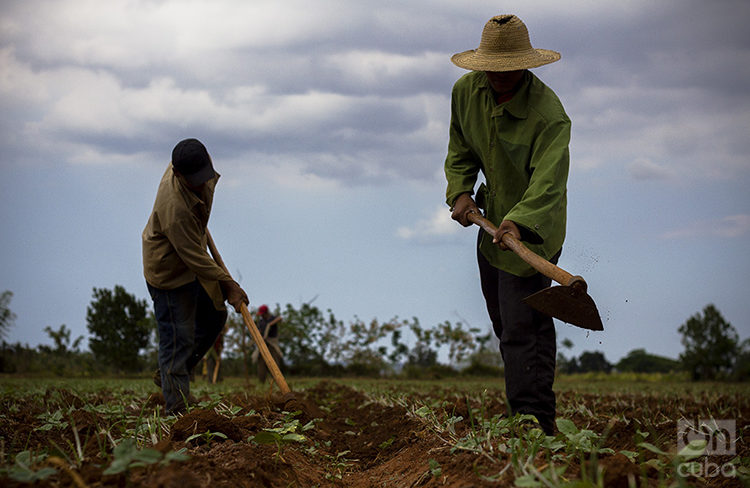An agroecology network that will provide a vehicle for connecting sustainable food systems practitioners and advocates in the United States with their counterparts in Cuba has just been launched by the the Schumacher Center for a New Economics.
The Cuba-U.S. Agroecology Network (CUSAN), as it has been named, is an initiative that developed as a result of a visit to Cuba in the Fall of 2014 by a delegation organized by the Schumacher Center with support from the Christopher Reynolds Foundation to see and learn as much as we could about Cuba’s sustainable food system, said executive director of the center, Susan Witt.
Cuba was forced to develop organic methods for growing fruits and vegetables beginning in the 1990s when the collapse of the Soviet Bloc led to the immediate loss of the island nation’s source of petroleum and petroleum-based products, most notably agricultural fertilizers and pesticides. The U.S. economic embargo against Cuba had been in place since 1960.
Greg Watson, currently Schumacher Center director of policy and systems design and formerly commissioner for the Massachusetts Department of Agricultural Resources, will direct the project.
Watson explained “Cuba, out of necessity, has applied agroecological practices to develop the most sophisticated and time-tested system of growing agricultural crops without the need for chemical fertilizers and pesticides. Our goal is to explore opportunities for research, education, and marketing collaborations between Cuba and the United States that will support the development of this globally important sustainable farming system in both countries.”
“The Christopher Reynolds Foundation is pleased to be able to support this exciting effort that has already attracted over 30 representatives from a wide range of organizations to
participate in the Cuba-U.S. Agroecology Network,” said Andrea Panaritis, the Foundation’s executive director. “U.S. admiration and support for Cuba’s agroecology movement cuts a broad swath that includes rural and urban farmers, consumers, environmentalists, educators, and economists among others.”
“The Cuba-U.S. Agroecology Network represents the kind of collaboration that the Ford Foundation hoped would emerge during the initial stages of renewed diplomatic relations between Cuba and the U.S.” according to Mario Bronfman, consultant to the Ford Foundation, managing its Cuba portfolio. “We are pleased to support this unique and synergistic initiative to advance sustainable farming and food sovereignty in these two countries.”
“This initiative has the potential to have significant positive impacts in both countries,” noted Margarita Fernandez, director of the Vermont Caribbean Institute – a member of the Network. “Cuba’s agroecology and farmer-to-farmer movement is a beacon that is lighting the way towards a viable and desirable future for farming and livelihoods. We believe that building solidarity across borders for learning, inspiration and motivation through the establishment of this network will strengthen the sustainability of agrifood systems in the U.S. and Cuba. This network is particularly important at this time, as normalization of relations between Cuba and the U.S. is underway.”
Rafael Betancourt, Colegio Universitario San Geronimo de La Habana professor of urban economics added that “While the agroecology movement was formed out of necessity in a time of crisis, Cuban farm families now embrace it and promote it with an immense sense of pride and accomplishment. Agricultural cooperatives have been formed to enhance the economic viability of these sustainable family farms.”











I would like to partner in this effort focusing on Black Farmers.